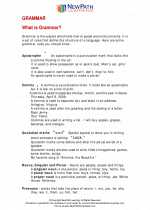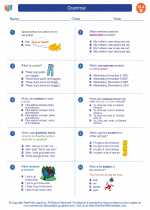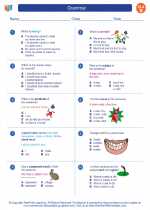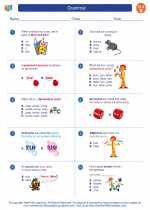Scavenger Hunt
A scavenger hunt is a game where players are given a list of items to find or tasks to complete. The participants then search for these items or perform the tasks within a specific area or time frame. It is a fun and interactive way to promote teamwork, problem-solving, and observation skills.
Types of Scavenger Hunts:
- Outdoor Scavenger Hunt: Players search for items or complete tasks in an outdoor environment such as a park, beach, or neighborhood.
- Indoor Scavenger Hunt: Participants look for items or clues within a building, such as a house, school, or museum.
- Virtual Scavenger Hunt: This type of scavenger hunt is conducted online, with participants finding items or information on the internet.
How to Organize a Scavenger Hunt:
- Create a List: Compile a list of items or tasks for the participants to find or complete.
- Set Boundaries: Determine the area where the scavenger hunt will take place and establish any off-limits areas.
- Divide into Teams: Organize the players into teams, making sure to have a good mix of ages and abilities on each team.
- Explain the Rules: Review the rules of the scavenger hunt, including time limits, safety guidelines, and how to document found items or completed tasks.
- Start the Hunt: Begin the scavenger hunt and monitor the teams as they search for items or complete tasks.
- Declare a Winner: Once the time is up, gather the teams and review their findings to determine the winner.
Skills Developed:
Participating in a scavenger hunt can help develop the following skills:
- Teamwork and Collaboration
- Problem-Solving and Critical Thinking
- Observation and Attention to Detail
- Communication and Leadership
Conclusion:
Scavenger hunts are not only an enjoyable activity but also a great way to enhance various skills in a fun and engaging manner. Whether conducted outdoors, indoors, or virtually, scavenger hunts provide a unique opportunity for participants to work together, think creatively, and explore their surroundings.
[Scavenger Hunt] Related Worksheets and Study Guides:
.◂English Language Arts Worksheets and Study Guides Second Grade. Grammar
Study Guide Grammar
Grammar  Worksheet/Answer key
Worksheet/Answer key Grammar
Grammar  Worksheet/Answer key
Worksheet/Answer key Grammar
Grammar  Worksheet/Answer key
Worksheet/Answer key Grammar
Grammar 

 Worksheet/Answer key
Worksheet/Answer key
 Worksheet/Answer key
Worksheet/Answer key
 Worksheet/Answer key
Worksheet/Answer key

The resources above cover the following skills:
Students employ a wide range of strategies as they write and use different writing process elements appropriately to communicate with different audiences for a variety of purposes. (NCTE)